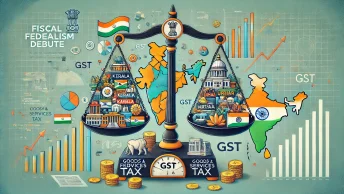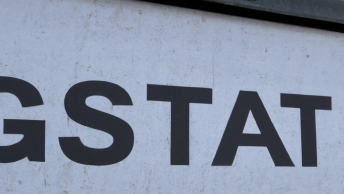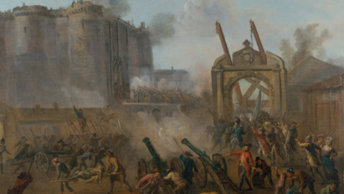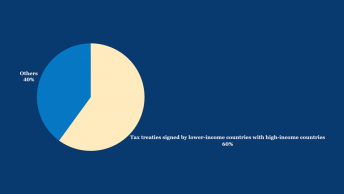This series is aimed at examining the role of unjust taxation in triggering civil liberties movements across centuries and spanning different regions. The following article will introduce and discuss a brief overview of the philosophical underpinnings of tax, and the earliest recorded revolts in resistance to taxes. This series was written by Apoorv, Pranav, Saranya, and Vinesh from the CTL.
Introduction
Taxation and civil liberties, have been closely related throughout history. Instances of rebellions and riots protesting tax impositions often made to finance administrative or war expenditures, are a persistent theme spanning centuries and cultures. From the Sumerian tablets dating back to 2500 BC (which was a form of forced taxation known as the ‘burden’) and the resistance displayed by people, to the various tax protests in the last few centuries, we can see a close connection between tax revolts and civil liberties movements. Drawing upon the observations of Charles Tilly, who noted that tax revolts provide a unique insight into confrontations surrounding political order and obligations, this blog series aims to show the pivotal role of tax protests in civil liberties movements.
Tax protests have emerged as potent manifestations of discontent and resistance against perceived injustices. The excessive or unjust imposition of taxation becomes a rallying point, uniting individuals who challenge the legitimacy of authority and advocate for greater accountability, representation, and safeguarding of individual freedoms.
Philosophical Foundations of Taxation:
Significance of Taxation in the Development and Control of Civilizations
The genesis of taxation can be traced back to the ancient ages when governance in an organised form began to emerge. The authority of the government to levy taxes was often derived from a combination of factors, including historical customs, religious beliefs, and the consolidation of political power.
In ancient India, during the Vedic period (1500 BCE – 600 BCE), society was divided into four Varnas or social classes, with the Kshatriyas (warriors and rulers) being one of them. The Kshatriyas held significant political power and were responsible for protecting society, maintaining law and order, and governing the kingdom. Initially, the Kshatriyas relied on voluntary contributions or tributes from the people they ruled over. These contributions were given as acts of respect, loyalty, or religious duty and were not enforced by law.
For instance, a list of taxes is mentioned in the Arthashastra which is considered very broad and if it would have been absolutely implemented, the people would have been forced to pay everything that they earned. Taxes were often collected in the form of agricultural produce, and rural storehouses played a role in storing these collections, potentially serving as a source of relief during times of famine or other crises.
Over time, as political structures became more centralized and complex, voluntary tributes evolved into obligatory payments. Rulers and kings, seeking to consolidate their power and maintain the stability of their kingdoms, gradually formalised the collection of tributes and transformed them into taxes. This transition was often accompanied by the codification of laws and the establishment of an administrative machinery to collect taxes.
Taxation in ancient India served several purposes that were necessary for the functioning of the state, including the generation of revenue and the maintenance of social order. Revenue generation was important for maintaining armies and administering kingdoms. Taxation also played a crucial role in maintaining social order by establishing police forces and enforcing the kingdom’s laws.
Taxes in ancient empires, such as Egypt, Mesopotamia, China, and the Inca, had dual roles as religious contributions and government revenue. These theocratic societies intertwined religion and governance, with rulers seen as divine. Subjects were often regarded as the ruler’s property, leading to their involvement in civic projects and military service. Taxes served to support both the ruler’s divine stature and the state’s needs, blurring the lines between religious obligation and fiscal duty.
Redistribution of wealth was another reason for taxation. The revenue collected from land taxes, tariffs, and other sources was utilised for the welfare of the larger population. The authority to levy taxes and the establishment of a formalised taxation system legitimized the power of the ruling class. Taxation was linked with religion, and rulers were considered to be the rightful representatives of God. The link between taxation and the rulers’ divine authority further legitimized the collection of taxes.
In addition to revenue generation and maintenance of law and order, the government’s power to tax also played a role in population management and control. Governments enforced compliance through the establishment of administrative bodies responsible for tax collection. Non-payment or evasion of these taxes led to penalties, fines, or legal consequences, which created a sense of obligation and incentivized compliance among the population.
Taxation and Social Contract
The social contract framework aims to restrain taxpayers from becoming overly self-centred with their economic resources. The social contract transforms taxpayers from individualistic thinkers into contributors to the collective welfare, achieved through equitable distribution of economic resources via taxation.
The Social Contract Theory explains the reasons for people organizing into political societies and exchanging autonomy and independence for social security. Taxation is viewed as the payment made by individuals for the protection of their property rights. The desire to preserve one’s life is a strong motivation for individuals, leading them to choose a sovereign authority to establish peace and security. This choice is guided by natural laws that dictate seeking peace and sacrificing some natural liberty in proportion to the sacrifice made by others.
Thomas Hobbes considered taxation an essential aspect of any commonwealth, closely tied to security and the enjoyment of life. In Hobbesian theory, taxes are seen as the wages citizens pay to the sovereign for the defence of their trades and livelihoods. All subjects benefit from the peace and should contribute through taxation. However, taxation should be limited to maintaining civil peace and national security. There are no limitations on the sovereign with respect to taxation so long as it does not threaten the self-preservation of its subjects. Citizens, consequently, have the right to resist commands that jeopardize their self-preservation.
Hobbes also emphasized the principle of equal taxation as a matter of natural law. Since contributions to the community are the price paid for peace, it is logical that those who equally share in the peace should pay an equal part. Sovereigns are obliged by natural law to impose the burdens of the commonwealth equally upon citizens.
For Montesquieu, taxes and political liberty were closely intertwined. Revenues collected through taxation are the portion citizens contribute from their goods in exchange for security and the comfortable enjoyment of their remaining property.
Hume’s perspective on taxation was more practical than theoretical. He suggested that individuals accept taxation because of its customary nature. When a new government is established, people may initially comply out of fear and necessity, but over time, they gradually come to regard it as their lawful ruler. Hume advocated responding to higher taxes by increasing one’s labour instead of demanding higher wages.
Rousseau saw the obligation to pay taxes as arising from the social contract. According to him, taxation should be based on the general will, determined through the consent of the people or their representatives. For Rousseau, taxes should be assessed at a proportional rate to avoid arbitrariness, and the spirit of the law and the sense of justice inherent in the general will should guide the application and enforcement of tax laws.
Taxation and Democracy
Taxes are fundamental to how society operates and to the wellbeing of its citizens. Judge Oliver Wendell Holmes Jr. very succinctly expressed this thought when he said that “taxes are the price we pay for a civilized society”. In a democracy, the tax system plays a vital role by providing the state the revenue to finance public goods and enable wealth redistribution. Through targeted government spending, redistribution aims to address societal inequalities. It is important to note that in a liberal society, no person is obligated to make any payment without their consent.
While governments acquire funds from a variety of sources, taxation is often the primary means of generating revenue in a liberal democracy. This highlights the strong connection between liberal democracies and taxation, as liberalism typically recognizes private property, which the government is necessitated to tax to collect sufficient wealth. It is argued that when representation is decoupled from taxation, it can lead to extravagant and irresponsible citizenship.
The tax system serves as a policy instrument that influences citizens’ behaviour. In a healthy civic environment, voters understand that they contribute financially to the government and are thus affected by public expenditures. Both voting and paying taxes are ways in which citizens fulfil their obligations under the fiscal social contract. Without this contract, there can be no security for any individual. It is crucial for both parties to the fiscal-social contract to fulfil their obligations in order for society to function effectively.
Challenging Taxation
Tax resistance encompasses various tactics such as tax evasion, tax fraud, and even the establishment of alternative economic structures aimed at circumventing taxes. At its core, tax resistance involves the deliberate act of not fulfilling tax obligations. Individuals or groups may adopt diverse strategies for resisting taxation, driven by their distinct motivations. Throughout the annals of history, tax resistance has emerged as a means to express dissent or propel societal transformation.
It’s essential to acknowledge that tax evasion typically carries legal consequences in most jurisdictions. Governments worldwide have established legal frameworks to ensure the collection of taxes. Depending on the gravity of the resistance and the prevailing legal statutes, penalties for tax evasion can vary from monetary fines to periods of incarceration.Top of Form
Throughout history, protestors have employed various methods of tax avoidance. Some resisters refuse to pay taxes and instead make a donations to charities to show that their intent is to really contribute to the common good. Julia Butterfly Hill, for example, engaged in tax resistance by refusing to pay around $150,000 in federal taxes. Rather than remitting the money to the government, she made the conscious decision to donate those funds to a range of worthy causes. Her contributions went towards supporting after-school programs, promoting arts and cultural initiatives, and supporting environment protection programs.
Some tax resisters choose to specifically refuse payment of certain taxes due to various reasons. They may find these taxes particularly objectionable, view them as a powerful symbolic target, or consider them more susceptible to resistance. For example, in the United States, many tax resisters specifically resisted the federal excise tax on telephones. This tax was initially introduced to fund the Spanish-American War and was repeatedly increased by the federal government during times of war.

The Boston Tea Party Currier
The Boston Tea Party of 1773 serves as another illustration of resistance during the American Revolution. In this event, a group of colonists, disguised as Native Americans, boarded British ships and defiantly threw chests of tea into Boston Harbour to protest the Tea Act imposed by the British government. This act of defiance became a powerful symbol of opposition to unfair taxation and played a significant role in fuelling the flames of the American Revolution.
Likewise, the Salt March of 1930 in India exemplifies tax resistance as a means to protest injustice. Led by MK Gandhi, the Salt March was a peaceful protest against the salt tax imposed by the British colonial government, affecting both the wealthy and the poor Indians. The impact of both the Boston Tea Party and Gandhi’s Salt March will be explored in more depth in later instalments of this series, highlighting their profound influence on shaping historical movements and advocating for civil liberties.
A Closer Look at Historical Instances of Tax Resistance
Tax resistance has a rich historical legacy as a tool for protest and opposition against various forms of oppression and social injustice. Across different eras and regions, individuals and groups have employed acts of resistance, refusing to comply with or diverting their tax payments to challenge the prevailing norms. For example, in 1197, residents of Constantinople organized a protest against the collection of protection money, leading Emperor Alexios III Angelos to resort to stripping ornaments from old tombs to raise revenue. The emperor was preparing against the Crusaders who had arrived outside Constantinople for preparing a siege. The emperor had become unpopular among the masses because of the unjust collection from them. The people of Constantinople helped the crusaders as protest and the emperor was forced to flee.
The resistance against Emperor Alexios’s tax is just one of the many such instances in humanity’s longstanding tradition of using tax resistance to champion civil liberty. This series on taxation and civil liberties delves into this tradition. Several significant rebellions centred on tax resistance, such as those in medieval England and the British Raj in India, are discussed in detail in subsequent instalments of this series.
Historically, tax resistances have taken place since forever. The earliest instance was recorded in Roman Empire. In the early 1st century AD, the Jewish Zealots residing in Judaea vehemently rejected the poll tax enforced by the Roman Empire. This levy was met with hostility, symbolizing Roman oppression and an imposition of foreign authority. Historical records suggest that Jesus faced accusations of promoting tax evasion before his torture and crucifixion. It was alleged that Jesus not only discouraged payment of tribute to the emperor but also proclaimed himself as the Messiah and a direct challenge to Roman authority.
The Judean Revolt unfolded within the Roman province of Judaea between AD 66 and 70. The uprising was sparked by the burdensome taxes imposed by Roman governors, who were driven by Emperor Nero’s extravagant expenditures. Nero’s costly projects, such as the reconstruction of Rome and the creation of the Domus Aurea palace, necessitated substantial taxation. Consequently, Roman authorities escalated the tax rates, provoking significant discontent among the Jewish community in Judaea.
In response, revolutionaries within Jerusalem initiated subversive actions that culminated in intense clashes with the Roman forces. As a form of protest, the Jews in Judaea refused to render tribute to the emperor. Emperor Nero entrusted Vespasian with quelling the revolt, prompting him to raise three legions for the task. Ultimately, the city’s defences were breached, resulting in the destruction of the Second Temple (Herod’s temple) in 70 AD. This reinstated the imposition of heavy taxation upon the Jewish populace.

The Roman Siege Ramp (left) and the Base Camp (top centre left) from the First Jewish-Roman War
Vespasian introduced a unique temple tax intended specifically for Jews in AD 71. The collection of this tax commenced in AD 72, with the aim of raising funds to reconstruct Rome’s Temple of Jupiter Capitolinus. In Egypt, Jews had been contributing the temple tax to Onias IV’s Temple of Jehovah instead of the Jerusalem temple. When faced with Vespasian’s tax, Egyptian Jews opposed it, leading to a rebellion centred on Onias’ temple. Despite this, Roman authorities continued to levy taxes upon Jews until at least AD 116.

The Temple of Saturn, which housed the treasury in Ancient Rome
The Gabelle Revolts (France, 1542-1548): The Gabelle, a salt tax imposed by the French Government, sparked rebellion among the residents of La Rochelle. Armed rebels vehemently resisted the efforts of royal commissioners sent to collect the tax. In 1548, a more organized and widespread revolt erupted in Guyenne, leading to a violent suppression by the authorities. The same year witnessed violent uprisings against the Gabelle in Bordeaux, resulting in the killing of tax collectors. In retaliation, the French Government dispatched thousands of troops, who terrorized the populace and imposed martial law. Despite the brutal response, the rebellion ultimately achieved its goal, compelling King Henry II to refrain from implementing the salt tax.
The Croquant Rebellions (France, 16th and 17th centuries AD): The Croquant Rebellions were incited by a rise in estate and aristocracy taxation during a period of great distress following years of conflict and religious wars in France. Although the Croquants aligned themselves with King Henry IV of France against the Catholic League and its members, their primary motivation was opposition to taxation. There were three instances of Croquant Rebellions, taking place in 1594, 1624, and 1637. The first rebellion concluded with tax reductions, the second with the execution of rebellion leaders Donat and Barran, and the third with a national amnesty.
The Diggers (England, 17th century): The Diggers, a group of English agrarian communists, rejected private land ownership and enclosures. They engaged in tax resistance by cultivating unused land without paying rent or taxes as part of their protest.
Pugachev’s Rebellion (The Russian Empire, 1773-1775): Pugachev’s Rebellion was a peasant uprising against the Russian Empire. The rebels refused to pay taxes, challenging the authority of the ruling class and fuelling widespread unrest in various regions of the Empire.
House Tax Hartal (British India, 1810): The British colonial government made an attempt to expand an existing house tax from Calcutta to other regions in Eastern India, encompassing Varanasi, Bengal, Bihar, and Odisha. However, factors such as inflation, agricultural failures, and widespread poverty made the tax especially burdensome for the inhabitants of these areas. In response to these challenges, various non-governmental civil society organizations decided to stage a hartal, calling for a countrywide strike. The protest was successful, leading the government to repeal the house tax. In the subsequent year, a revised version of the tax was reintroduced, but with certain restrictions. The assessment and administration of the tax were now entrusted to Indian representatives. This modified tax system encountered little criticism or dissent.
Anti-Corn Law League (United Kingdom, 1839-1846): The Anti-Corn Law League in the United Kingdom advocated against protective tariffs on imported grain, commonly known as the Corn Laws. As a tactic to urge the government to repeal these laws and alleviate high food prices, they utilized tax resistance.Top of Form
Tax Resistance in the American Civil Rights Movement (United States, mid-20th century): As part of the civil rights movement, activists employed tax resistance as a form of protest against racial segregation and discrimination. By withholding or redirecting their tax payments, they aimed to challenge the unequal treatment of African Americans and advocate for social justice.
Conclusion
In conclusion, the historical interplay between taxation and civil liberties reveals a long and enduring tradition of tax resistance as a potent means of protest against oppression and social injustice. From ancient civilizations to modern democracies, the imposition of taxes has been a contentious issue, often leading to rebellions, riots, and social upheavals. Throughout history, individuals and groups have employed various forms of tax resistance to challenge the legitimacy of authority, advocate for greater accountability, and safeguard individual freedoms.
Historical instances of tax resistance, such as the Judean Revolt and the Gabelle Revolts, stand as powerful testaments to the enduring nature of this form of protest. Additionally, various movements like the Croquant Rebellions, the Anti-Corn Law League, and tax resistance within the American Civil Rights Movement underscore the capacity of tax protests to effect social change and challenge systemic injustices. In conclusion, it is evident that taxation and civil liberties are inextricably intertwined. Tax resistance remains a forceful expression of dissent and a catalyst for the protection of individual liberties.
Editorial note: The article was written based on the initial skeleton developed by Anuraag Bukkapatnam.
bento4d situs toto situs hk situs toto toto togel toto slot toto slot link slot gacor slot thailand slot gacor rtp slot






